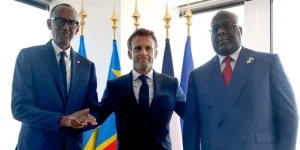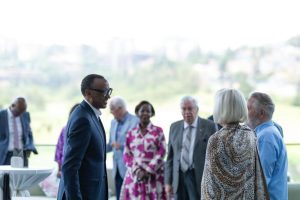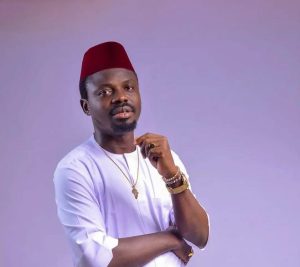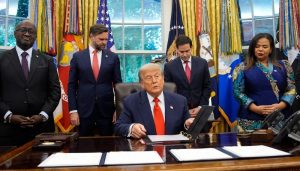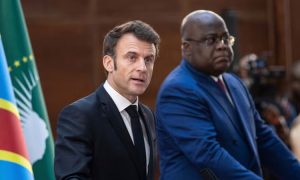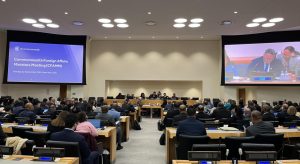The Roar Deferred: Africa and the Quest for Permanent Representation

By H.E Ambassador Godfrey Madanhire
Beneath the blue and gold emblem of the United Nations, where the world’s dignitaries gather to commemorate eighty years of multilateral diplomacy, the African continent remains symbolically present yet structurally excluded. Our leaders arrive with ceremonial grace, deliver eloquent addresses and depart with diplomatic courtesies. Yet Africa’s strategic voice is absent where it matters most, within the permanent chambers of the Security Council.
This is not a lamentation of weakness. It is a moment that demands reflection and resolve. Africa, with fifty-four sovereign states and more than 1.4 billion citizens, continues to be denied a permanent seat at the apex of global governance. The Security Council, which determines war and peace, sanctions and interventions, remains frozen in the architecture of 1945. Five nations hold veto power. None represent Africa. This is not diplomacy. It is disenfranchisement.
President William Ruto of Kenya, in a speech that pierced through the ceremonial fog, declared with clarity, “You cannot claim to be the United Nations while disregarding the voice of fifty-four nations. It is not possible. Africa dominates most of the Security Council’s agenda yet we remain the only continent without a permanent seat at the table where decisions about our destiny are being made.”
His words were not mere rhetoric. They were a reckoning. President Ruto invoked the Ezulwini Consensus and the Sirte Declaration, Africa’s long-standing demand for two permanent seats with full rights including the veto and two additional non-permanent seats. He reminded the assembly that reform is not a favour to Africa but a necessity for the survival of the United Nations. “If the United Nations is to remain relevant in this century it must reflect today’s realities not the postwar power arrangements of 1945.”
This call echoes the voice of President Robert Mugabe of Zimbabwe, who in September 2012 stood before the 67th United Nations General Assembly and condemned the Council’s selective interventions and disregard for African sovereignty. “We are treated as if we are not equal members of the international community,” he declared. “The Council’s insatiable appetite for war especially in Africa must be checked by African voices with equal standing.”
Again in January 2016, while opening the 26th African Union Summit in Addis Ababa as Chairperson of the AU, Mugabe spoke with unflinching clarity. “The Security Council has been used as a weapon of political convenience for the powerful at the expense of the weak. Africa’s exclusion from permanent membership is a travesty that undermines the very principles upon which this institution was founded.”
These were not isolated remarks. They formed part of a principled tradition of African resistance to structural injustice. Yet today the silence from other African leaders is deafening. Where is the fire of Nkrumah, the clarity of Machel, the defiance of Lumumba? Why do our presidents speak of climate and trade yet fail to demand structural justice? Why do we gather in New York as guests not architects?
Africa’s diplomatic posture has been softened by aid dependency, fragmented by regionalism and distracted by ceremonial optics. We have become participants in a global play whose script we did not write. Some African organisations issue statements but often lack the teeth to bite. Our leaders attend but do not contest. They speak but do not demand.
Meanwhile the Security Council deliberates on Mali, Sudan, Congo and Somalia without African veto, without African permanence. We are the subject never the author. This is an affront to our sovereignty.
It is the hour for Africa to rise with clarity and conviction. We must no longer beg for inclusion. We must assert our place. A permanent seat is not a privilege. It is a right. It is the recognition of our historical contribution, our demographic weight and our moral authority.
Let our leaders return to Addis Ababa not with platitudes but with a continental strategy. Let every African embassy in New York become a citadel of advocacy. Let our youth, our scholars and our diplomats speak with one voice. Africa must rise not in ceremony but in structure.
President Ruto reminded the world that institutions do not fail for lack of vision. They fail when they lose legitimacy. “Institutions rarely fail because they lack vision. They drift into irrelevance when they do not adapt, when they hesitate to act and when they lose legitimacy.”
Until Africa’s voice is enshrined not only beneath the blue and gold emblem but within its chambers of power, the promise of the United Nations remains incomplete. The time for silence has passed. The lions must roar. Africa must demand its seat not tomorrow, not eventually but now.
Authored by His Excellency Ambassador Godfrey Madanhire, Diplomatic Envoy of the State of the African Diaspora, Chief Operations Officer, Radio54 African Panorama, Pan-Africanist and Advocate for Sovereign African Governance

SUBSCRIBE TO OUR NEWSLETTER



